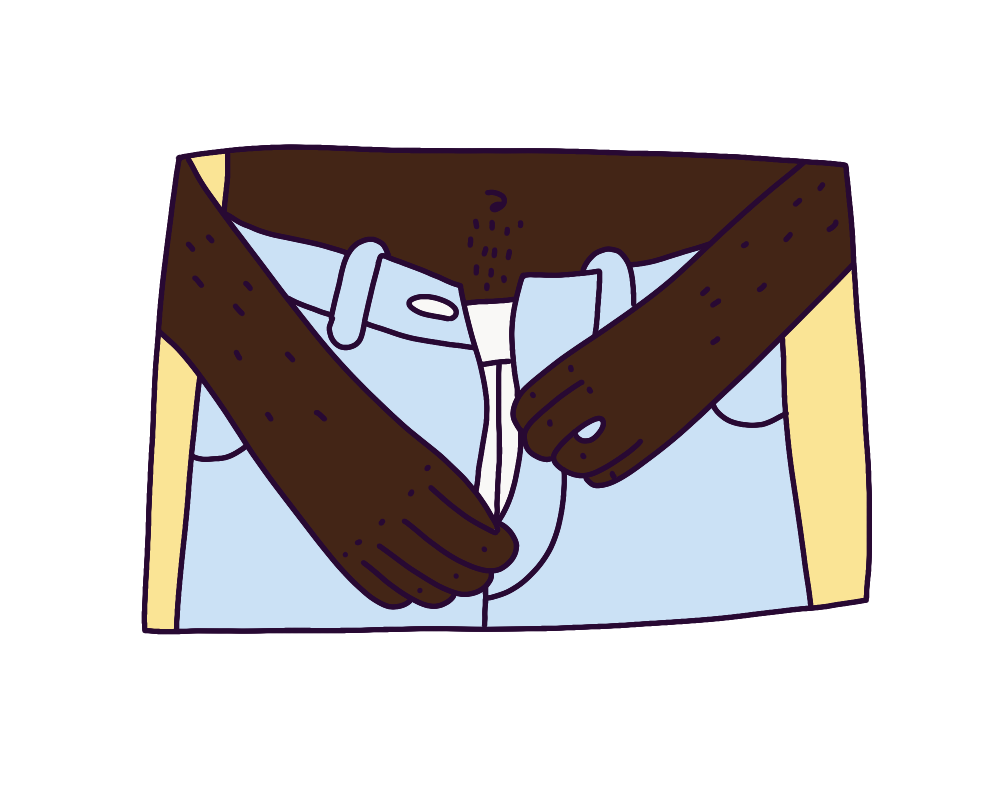Orgasms
It’s normal to think orgasms are the main goal of sex — but that’s not always the case. In reality, orgasms can mean different things to different people.

⚠️ Content Warning
This page contains descriptions of types of sexual activity.
What is an orgasm?
An orgasm, also known as 'cumming' or 'climaxing', is what happens when you reach the peak of sexual excitement or arousal. It’s the sudden release of sexual tension and pressure from the body, which results in the rhythmic contractions of the pelvic area muscles. During an orgasm, your body releases ‘happy hormones’, such as dopamine and oxytoxcin. Some people also experience sensations in other parts of their body too, as well as an increased heart rate and heavier breathing. For most people, orgasms feel pretty great. That’s why orgasms are often seen as the end goal of sex, although whether or not this is a good thing is up for debate.
How do people get an orgasm?
It’s different for everyone. Most of the time, orgasms occur from direct contact with the most sensitive parts of the genitals, either during masturbation or during other kinds of sex . Sometimes, people can orgasm without any genital contact at all, or during other types of sexual activity like kissing or outercourse.
Is having too many orgasms bad for you?
No. Orgasms won’t hurt you.
However, if you find you’re orgasming mostly to porn as a habit, it’s important to know that your brain can become used to certain images, videos and visual cues in order experience pleasure. Frequently orgasming while watching porn can train your brain to become primarily turned on by pornographic images and videos. You may find that you become less ‘turned on’ by relationships and physical connection with others offline.
Some people may find that temporarily pausing their use of porn and masturbation can help them to ‘reset’ their cycles of compulsive porn use and, in turn, help them to feel more control over their own lives. If you have concerns about your own frequency of porn use, you can read more [here] .

What if I’m struggling to have an orgasm?
First things first: it’s OK not to orgasm. While orgasms are often thought of as the end goal of sex, this isn’t the case for everyone, and putting pressure on yourself to orgasm can actually make it even harder to achieve.
🧐 Did you know?
While there might sometimes be health or emotional reasons that cause difficulty having an orgasm, sometimes people may never have had an orgasm because of social reasons or unrealistic expectations, like believing that vaginal penetration is needed to orgasm. Around 1 in 4 cis women in Australia couldn’t have an orgasm from penetrative sex in the last 12 months.
Source:
Sexual Difficulties, Problems, and Help‑Seeking in a National Representative Sample: The Second Australian Study of Health and Relationships 2022
Read more [here]
There’s also more to orgasms than just stimulation of the sex organs. Being able to orgasm often depends on how you feel, and being in the right place, at the right time, with the right person, or in the right mental and emotional place.
Things that can affect your experiences about orgasm can include:
- feeling under pressure to finish quickly
- feeling under pressure not to finish too quickly (especially for people with penis)
- pressure to ‘perform’ sexually with a partner, especially if they are a new partner, or you feel less experienced
- feeling ashamed or anxious about your body
- other mental health conditions, like anxiety or depression
- alcohol or other drugs
Take your time, relax, and enjoy masturbation or sex for what it means for you - whether that’s connection, intimacy, pleasure or fun. Focus less on orgasm as a goal, and more on enjoying the sensations and experiences in the moment. Understanding your own body, what feels good for you, communicating your needs to your partner, and making sure that you feel safe and comfortable during sex can all help.
Don’t want to orgasm, but feel pressured to
Sex can be fun and pleasurable, even if you or your partner don’t orgasm. Sometimes, you might not want or need to orgasm during sex. Not orgasming does not mean that you, or your partner, didn't enjoy yourselves. Sex can be an enjoyable experience without orgasms.
If you feel pressured to orgasm, talk to your partner about it. Communicate that you don’t want or need to orgasm right now. Work together on finding a way to be intimate together that works for both of you, and which is comfortable, safe, and enjoyable.
In summary
Orgasms are both more complicated and also simpler than they seem. It can be useful to remember to enjoy the feelings and sensations of sex and relationship outside of orgasm. While orgasms can feel very good, they don't have to be your main goal in sex.
Help us improve this info by letting us know how you found it.
Start
Changes in the body and puberty
